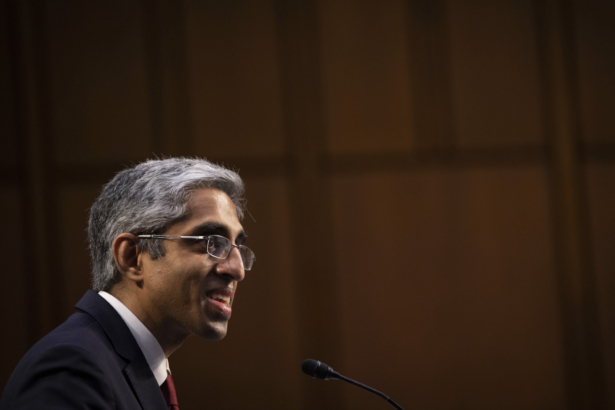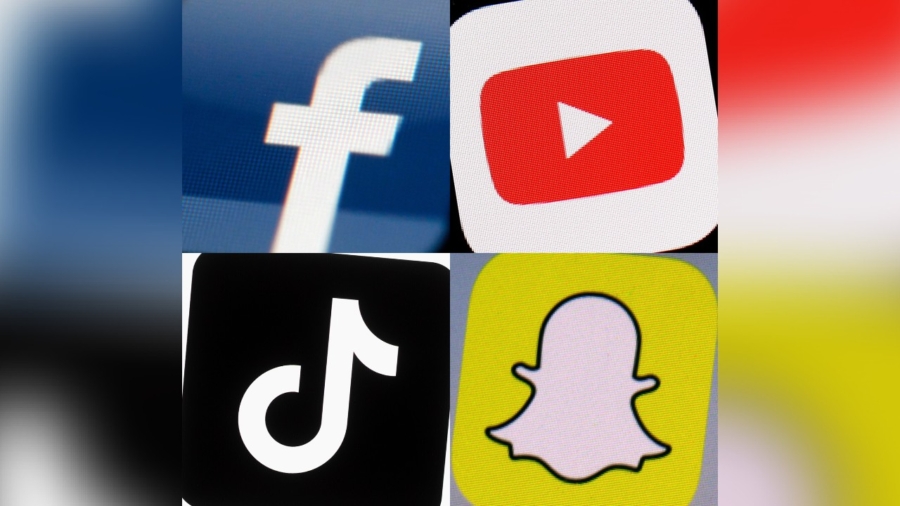The high number of young teenagers on social media platforms has given medical professionals cause for concern. The U.S. Surgeon General says he believes 13 is too young for adolescents to be on social media.
U.S. Surgeon General Vivek Murthy says regular social media use could disrupt their identity development, which is still largely undefined at that age.
Currently, 13 year-olds are allowed on most social media platforms, including Meta and Twitter. But there’s growing evidence of the harm such platforms pose to adolescents such as altering the brain chemistry of young people when used habitually.
“I, personally, based on the data I’ve seen, believe that 13 is too early … It’s a time where it’s really important for us to be thoughtful about what’s going into how they think about their own self-worth and their relationships and the skewed and often distorted environment of social media often does a disservice to many of those children,” Murthy told CNN.
While he acknowledged that keeping children away from the popular platforms is difficult, he stressed the importance of parents joining forces for the sake of their children.
“If parents can band together and say, you know, as a group, we’re not going to allow our kids to use social media until 16 or 17 or 18 or whatever age they choose, that’s a much more effective strategy in making sure your kids don’t get exposed to harm early,” he told CNN.
A recent study, featured by JAMA Pediatrics, concluded that young people with regular access to social media and with prolonged use, showed a significant increase in neural sensitivity in parts of their brains, effectively leading to greater sensitivity to social consequences.
The study involved over 160 students, all aged 12, from three public middle schools across North Carolina.
Each of the children had to document the regularity of their social media use of platforms such as Facebook, Snapchat, and Instagram.
Their brain responses were then analyzed based on a Social Incentive Delay task. Measurements were then taken when the students were receiving social rewards and avoiding social punishments.
Participants who engaged in habitual checking behaviors showed a distinct neurodevelopmental trajectory within regions of the brain comprising the affective salience, motivational, and cognitive control networks in response to anticipating social rewards and punishments compared with those who engaged in non-habitual checking behaviors, according to the study.
This suggests that frequent checking patterns on social media in early adolescence may align the brain’s sensitivity to potential social rewards and punishments.
This phenomenon is nothing new to psychiatrists like Dr. Adriana Stacey, whose work is primarily focused on teenagers and college students. In a previous interview with CNN she stated that social media use releases a “dopamine dump” in the brain.
“When we do things that are addictive like use cocaine or use smartphones, our brains release a lot of dopamine at once. It tells our brains to keep using that. For teenagers in particular, this part of their brain is actually hyperactive compared to adults. They can’t get motivated to do anything else,” she said.
More studies found a direct connection between excessive screen time and lowered brain development. Young children, in particular, exhibited lower emerging literacy skills and an impeded ability for using expressive language.

Murthy’s concerns were echoed by Democratic Sen. Chris Murphy. Having recently published an op-ed in the Bulwark about loneliness and mental health, he said society has lost something, as so much of our lives are spent communicating screen-to-screen.
“It just doesn’t give you the same sense of value and the same sense of satisfaction as talking to somebody or seeing someone,” Murphy told CNN in an interview alongside Murthy.
Both Murphy and Murthy are on a personal quest. Both are fathers to teenagers and young children respectively. Murphy said his and Murthy’s views are closely reflected on the issue of loneliness and this is not coincidental.
“I look at this through the prism of my 14-year-old and my 11-year-old,” he subsequently told CNN.
He added that there’s more U.S. lawmakers can do as a whole to limit social media use for young children and to find incentives for companies to make algorithms less appealing.
The surgeon general made a similar statement regarding addictive algorithms. His argument is that Big Tech clearly has the upper hand over adolescents.
“It’s just not a fair fight. You have some of the best designers and product developers in the world who have designed these products to make sure people are maximizing the amount of time they spend on these platforms. And if we tell a child to use the force of your willpower to control how much time you’re spending, you’re pitting a child against the world’s greatest product designers,” he explained.

